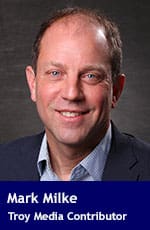MP Leah Gazan’s proposed bill targetting residential school denialism would stifle Indigenous voices, too

For interview requests, click here
The effort by MP Leah Gazan to criminalize residential school views she labels “denialist” is a mistake. Gazan’s Bill C-413, if passed, would criminalize any statement that might be interpreted as “condoning, denying, downplaying or justifying the Indian residential school system in Canada through statements communicated other than in private conversation.”
Let’s start with examples of who might face criminal prosecution under Gazan’s bill if it were applied to future cases: Indigenous Canadians who have publicly ‘condoned’ or at least partly justified residential schools.
In 1998, Rita Galloway, a teacher who grew up on the Pelican Lake First Nation in Saskatchewan and the then-president of the First Nations Accountability Coalition, shared her views on residential schools in an interview. She mentioned having “many friends and relatives who attended residential schools” and acknowledged that, like most institutions, there were both “good and bad elements.” However, she argued that “overall, their experiences were positive.”.
 |
| Recommended |
| Report urges balanced view of Residential Schools legacy
|
| Why is Trudeau sticking to the unmarked graves hoax?
|
| Why did residential schools stay open long after Ottawa wanted to close them?
|
In 2008, the late Richard Wagamese, a renowned Ojibwe author and journalist, wrote a piece in the Calgary Herald acknowledging the many cases of abuse that took place at residential schools. But Wagamese also emphasized the importance of telling positive stories, including his own mother’s experience at a residential school.
After praising the neatness of his 75-year-old mother’s home and well-kept lawn on a reserve outside Kenora, Ont., Wagamese said she credited her residential school experience for teaching her valuable domestic skills. Critically, Wagamese observed that his mother “has never spoken to me of abuse or any catastrophic experience at the school.”
Wagamese argued the then-forthcoming Truth and Reconciliation Commission (TRC) “needs to hear those kinds of stories, too,” and that telling “the good along with the bad” will “create a more balanced future for all of us.”
That’s not to suggest such schools were perfect – or even optimal. As well-documented, physical and sexual abuse did occur in some of them, and this is something that must never be minimized or overlooked.
It’s too easy to forget the limited choices that existed for Canadians in the 19th and early 20th centuries. As we do today, most people back then believed in the value of universal education. Many Canadians, both Indigenous and non-Indigenous, lived in poverty, had rudimentary transportation links, and limited job opportunities. These challenges made it difficult to establish day schools, especially in remote areas like reserves.
Imagine the outcry today if past generations of parishioners, parents (including Indigenous parents), and politicians had largely ignored remote reserves and failed to provide Indigenous communities with any educational opportunities. The same voices that now offer no room for nuance on the topic of residential schools would likely excoriate the decision to deny education to Indigenous children.
The choices made in the 19th and 20th centuries were not between perfection and its opposite but were rather a trade-off between suboptimal choices. Understanding this requires nuance, which is in short supply these days.
For example, take the case of Paul Coffey, a Métis man and Manitoba school trustee, who faced backlash after speaking about racism at a Mountain View School Division board meeting in Dauphin, Manitoba, in April of this year. During his presentation, Coffey touched on the subject of residential schools, attempting to present a balanced perspective by acknowledging both the good and bad aspects of these institutions. However, his remarks were met with widespread criticism, with many condemning his attempt to include positive reflections on residential schools in his argument.
Criminalizing these stories and opinions would mean that Indigenous voices like these three, along with many others, could face fines or jail time. This is precisely why speech, unless urging violence, should never be criminalized.
Another reason not to criminalize speech is that it makes it even more difficult to correct bad ideas or address lingering injustices. An open society requires open discourse. It’s the only way to identify and rectify errors. When people risk fines or imprisonment for expressing their thoughts, even if they are wrong, the opportunity for public debate and correction is lost.
Gazan’s bill represents the latest attempt by Canadian politicians to suppress viewpoints and conclusions they disagree with. That kind of suppression is both illiberal and unhelpful. Mandating a single point of view damages the accumulation of knowledge crucial for progress and understanding. It prevents a thorough examination of why abuses occurred in residential schools and hinders the open debunking of wrongheaded positions.
No one person will be right every time. Open, public debate is critical to exposing errors and advancing human progress.
Mark Milke is the president of the Aristotle Foundation for Public Policy.
Explore more on Residential schools, Free speech, Totalitarianism, Coercive progressivism
The opinions expressed by our columnists and contributors are theirs alone and do not inherently or expressly reflect the views of our publication.
Troy Media
Troy Media is an editorial content provider to media outlets and its own hosted community news outlets across Canada.

